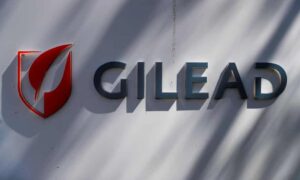
A new drug described as “the closest we have ever been to an HIV vaccine” could cost $40 (£31) a year for every patient, a thousand times less than its current price, new research suggests.
Lenacapavir , sold as Sunlenca by US pharmaceutical giant Gilead, currently costs $42,250 for the first year. The company is being urged to make it available at a thousand times less than that price worldwide.
UNAids said it could “herald a breakthrough for HIV prevention” if the drug was available “rapidly and affordably”.
Given by injection every six months, lenacapavir can prevent infection and suppress HIV in people who are already infected.
In a trial, the drug offered 100% protection to more than 5,000 women in South Africa and Uganda, according to results announced by Gilead last month.
Lenacapavir is currently licensed for treatment, not prevention.
In a study presented at the 25th international Aids conference in Munich on Tuesday, experts calculated that the minimum price for mass production of a generic version, based on the costs of lenacapavir’s ingredients and manufacturing, and allowing for 30% profit, was $40 a year , assuming 10 million people used it annually. In the long-term, 60 million people would probably need to take the drug preventatively to lower HIV levels significantly, they said.
Dr Andrew Hill, of Liverpool University, who led the research, said: “You’ve got an injection somebody could have every six months and not get HIV. That’s as close as we’ve ever been to an HIV vaccine.”
Most HIV prevention presently relies on daily pills and barrier measures, such as condoms.
Campaigners want Gilead to allow generic licensing through the UN-backed Medicines Patent Pool in all low- and middle-income countries (LMICs), which account for 95% of HIV infections. Similar mechanisms have been in place in the HIV treatment market for decades, where wealthy countries pay higher prices than poorer ones.
If that did not happen, Hill said, countries should consider issuing compulsory licences allowing generic manufacture in the face of a public health emergency.
